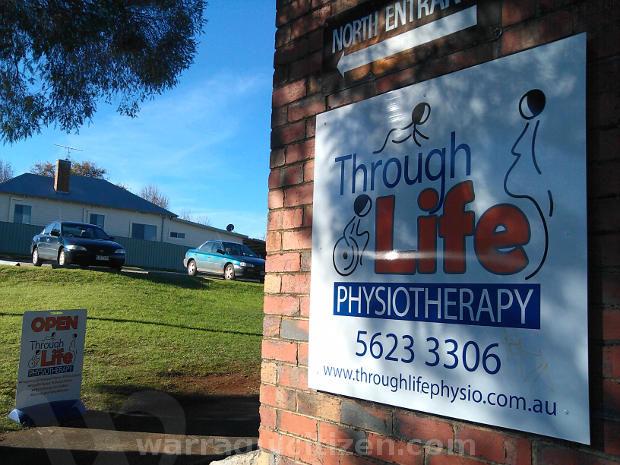
A WARRAGUL physiotherapist says the Traffic Accident Commission must increase its physiotherapy payments after she made no income last financial year through treating road injury clients.
Through Life Physiotherapy owner Helen Low told The Warragul Citizen she introduced a gap fee to cover costs but is still making a loss when she travels to see clients.
ADVERTISEMENT
“In the 2011-2012 financial year I worked… about 30 hours per week, and I got to the end of the year and I made absolutely no income for myself,” Ms Low said.
“One of the significant contributions to that financial difficulty was just accepting TAC rates for the work that we were doing of the TAC clients.
“I introduced gap fees for my TAC clients and I did lose clients over that because they couldn’t pay the gap fee.
“The TAC pays about $96 per hour when we drive, whereas the costs I incur when I drive are more like $242 per hour.
ADVERTISEMENT
“At the moment I don’t pass that on to the clients, I’m wearing that cost myself because for the people in this situation (unable to visit a physiotherapist) finances are often very difficult.”
Ms Low said some clients stopped undergoing physiotherapy when she introduced the gap fee of $31 for TAC clients.
“Some of those people are now going without physiotherapy and others have tried going to other physiotherapists who don’t charge gap fees,” Ms Low said.
“They tend to not be physiotherapists with as much experience in neurological rehabilitation so it’s not as optimal for their recovery.”
Ms Low said the TAC’s cover does not consider the extra costs faced by physiotherapists in regional areas and the organisation has not responded to requests for increased travel payments.
TAC CEO Janet Dore told The Warragul Citizen the organisation was reviewing a submission from the Australian Physiotherapy Association Victoria asking them to review the payments.
“The TAC is in the process of reviewing the submission and will meet with the APA in the coming months to discuss the outcome of the submission,” Ms Dore said.
“The TAC will continue to work with the APA in ensuring TAC clients receive quality physiotherapy care.
ADVERTISEMENT
“This includes working with the APA to develop opportunities for physiotherapists to improve outcomes for TAC clients.”
Ms Low said Through Life Physiotherapy came close to closing due to the gap and other physiotherapists in regional areas were feeling the pinch.
“I am aware of others,” Ms Low said.
“This is not just an issue for me, this is an issue for the Australian Physiotherapy Association’s Victoria Branch, which acknowledges that this is a problem for all physiotherapists.”
Ms Low employs three part-time receptionists and five part-time physiotherapists at Through Life Physiotherapy.
Ms Low said travel was important as learning how to use local facilities was key to the recovery of clients.
“One of my areas of special interest is neurological rehabilitation, so that’s people who have brain injuries and spinal cord injuries,” Ms Low said.
“The best way to do neurological rehabilitation is in the real world, so in a client’s house [and] community.
“It’s one thing to learn to walk in the tiny corridor at physio, but it’s quite another thing to learn to walk down the street and cross over a roundabout.”
Ms Low said she was the only listed physiotherapist for neurological rehabilitation who was able to treat TAC clients in Gippsland and clients can be a long way away.
“Paynesville is the furthest. So that’s about two and a half hours,” Ms Low said.
“I do have a client at the moment who’s in Leongatha and he really needs me to drive to Leongatha to work with him at his local gym and local pool – he has to drive to Warragul.”
Access to appropriate physiotherapy is an issue in Gippsland, Ms Low said.
“In Melbourne there are more than 20 physiotherapists working privately who specialise in this field,” Ms Low said.
“There might be public physiotherapists, but the TAC clients need to see private physiotherapists because that’s how they’re funded.”
Ms Low said she is uncomfortable with charging road injury clients fees.
“I don’t think that they should have to pay anything for their physiotherapy,” Ms Low said.
“We all pay our compulsory third-party insurance as part of our (vehicle) registration.
“We pay that in good faith assuming that if we are injured on our roads we will be looked after, but while the TAC pays something for physiotherapy, it’s not paying at the actual cost of what it costs a physiotherapist to operate.
“It’s not easy but I think it’s really important and as a physiotherapist I have a responsibility.
“If I’ve got these skills I have a responsibility to be serving the people in my community who have been injured on our roads, but I can’t do it for nothing.”









Carers for the the injured are also very badly paid causing problems in finding and retaining careres for those suffering brain injuries in accidents.
When will the TAC face up to their basic responsibility to pay for the medical care of those injured on our roads? That is why we pay our levy each year, not for expensive glamour-seeking TAC advertising. What’s worse is that TAC staff actually get paid bonuses for making sure that as little as possible is paid towards road trauma victims’ recovery. Disgusting.